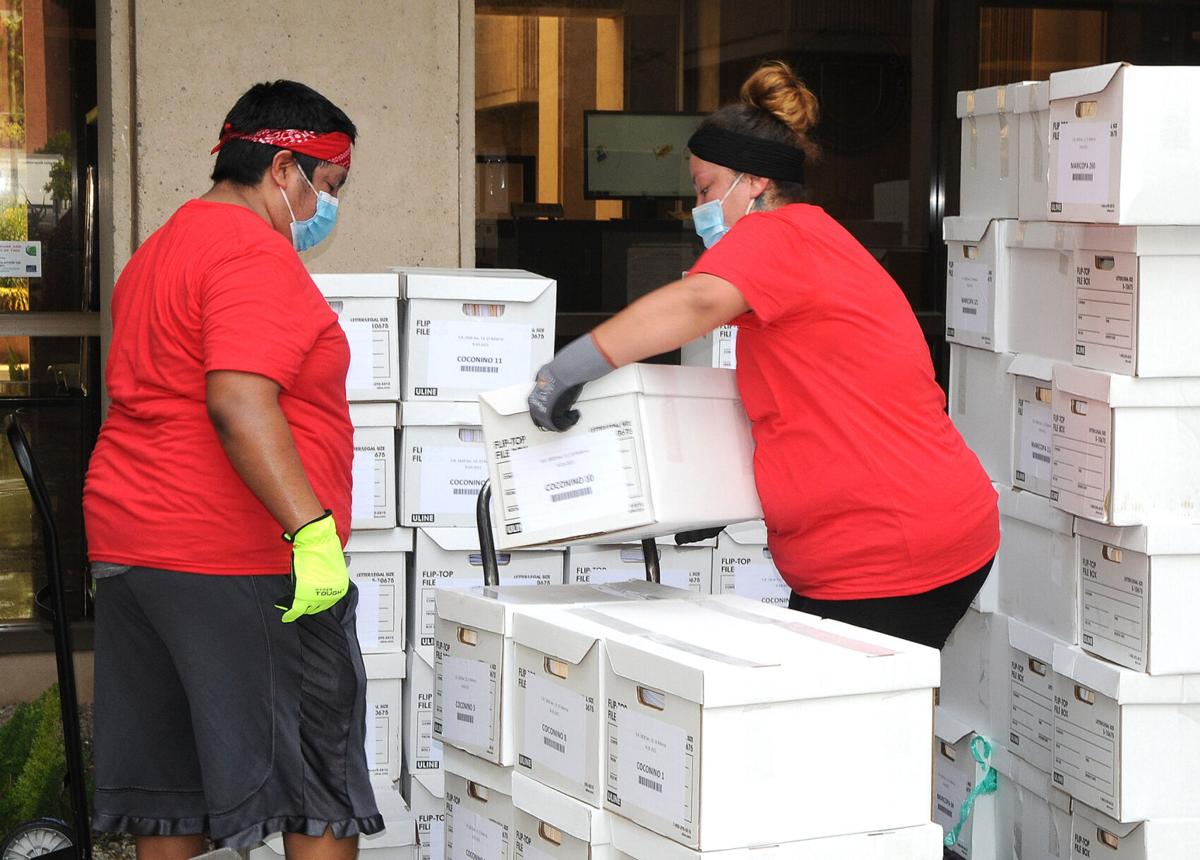PHOENIX — Business interests asked a judge Friday to block the public from voting on, and possibly vetoing, the $1.9 billion tax cut that largely benefits the wealthy, which was approved last year by the Republican-controlled Legislature.
Attorney Kory Langhofer, representing the Free Enterprise Club, detailed what he said are a series of mistakes made by people when they signed up to circulate petitions to refer the tax cut to voters. All the signatures those people gathered cannot be counted, he told Maricopa County Superior Court Judge Katherine Cooper.
Langhofer contends there are enough invalid signatures to leave Proposition 307 short of the 118,823 needed to put the measure on the November ballot.
But an attorney for Invest in Arizona, the group behind the initiative drive, said the requirements Langhofer is claiming circulators ignored do not exist in law.
More significantly, attorney Roopali Desai said even if there were technical violations — a point she is not conceding — they fall by the wayside because they would run afoul of provisions in the Arizona Constitution that specifically empower voters to second-guess the actions of the Legislature.
Hanging in the balance is the plan to scrap the current income tax system.
It sets variable tax rates, starting at 2.59% for taxable earnings up to $26,500 a year for individuals and twice that for married couples filing jointly. The top rate is 4.5% for individuals earning more than $159,000 a year.
The legislation approved last year on a party-line vote and signed by Republican Gov. Doug Ducey would replace all that with a single 2.5% tax rate beginning in 2025. Legislative budget staffers peg the reduction in state revenues at $1.9 billion a year.
Invest in Arizona leaders have said their issue with with the tax-cut plan is it would cut into funding for education and other programs.
Ducey has said the plan will provide a tax cut of about $300 a year for the “average Arizonan.”
But an analysis by legislative budget staffers shows annual tax savings of $11 for someone making between $25,000 and $30,000, a figure that increases to $96 for those in the $50,000 to $75,000 taxable range.
At the other end, taxpayers with income between $250,000 and $500,000 would net an average $3,071 in annual savings; those in the $500,000 to $1 million range would benefit by $7,300 a year, the budget analysts said.
Foes gathered about 215,000 signatures, and the secretary of state’s review found enough of them were valid to put the issue on the November ballot.
That led to the lawsuit by the Free Enterprise Club, which lobbies for lower taxes, attempting to quash the petition drive as illegal.
Cooper already tossed the first part of the organization’s complaint, rejecting the idea that matters involving taxes are not subject to referendum. Langhofer has appealed that to the state Supreme Court.
He is back with new arguments that there are irregularities in the petitions to disqualify enough signatures to leave it short of the minimum requirement.
Many of these relate to requirements added by lawmakers that out-of-state and paid circulators first register with the secretary of state.
For example, Langhofer told the judge, some circulators did not comply with requirements to provide a full address because they failed to list an apartment or hotel room number. He said that’s necessary if petition challengers want to question those people.
Desai, however, said that requirement does not exist in statute. And an attorney for the Secretary of State’s Office noted that the form circulators must fill out does not seek that information.
There is also about question of whether they must register each time they circulate a new petition and sign a new affidavit in front of a notary, and not just register online.
“Obviously, the internet is not a notary,” Langhofer said. “The notary confirms you are the person you say you are.”
But Desai told Cooper that once people have registered, even to circulate a petition in a prior year, there is no requirement to start from scratch each year.
Moreover, Desai said, “Plaintiffs don’t mention, not once, the constitutional right of referendum granted to the people of Arizona (under the constitution) as a backdrop to all of these statutes that have been passed regulating circulators and petition circulation.”
Consider, she said, the question of the lack of an apartment or hotel room number on the application to circulate petitions.
“It cannot be that that absence of number, that has no legitimate legislative purpose, and has no bearing on whether or not you can find them, invalidates every signature of every Arizona elector who signed a petition of that circulator,” she said.
Cooper set no date to issue a decision. But she acknowledged that whatever she rules is likely to be appealed to the Arizona Supreme Court.
This lawsuit isn’t the only current effort by the Free Enterprise Club to affect the November ballot. The organization is financing a separate initiative drive by Sen. J.D. Mesnard, R-Chandler, to ask Arizonans to impose new restrictions on voters before they can cast a ballot.
It would add a requirement that anyone dropping a ballot in the mail also must provide a date of birth or other identification like a driver’s license number or the last four digits of a Social Security number. The same requirement would apply to those who drop off their early ballots at polling places. That would be in addition to the current requirement for a signature on the ballot envelope.





